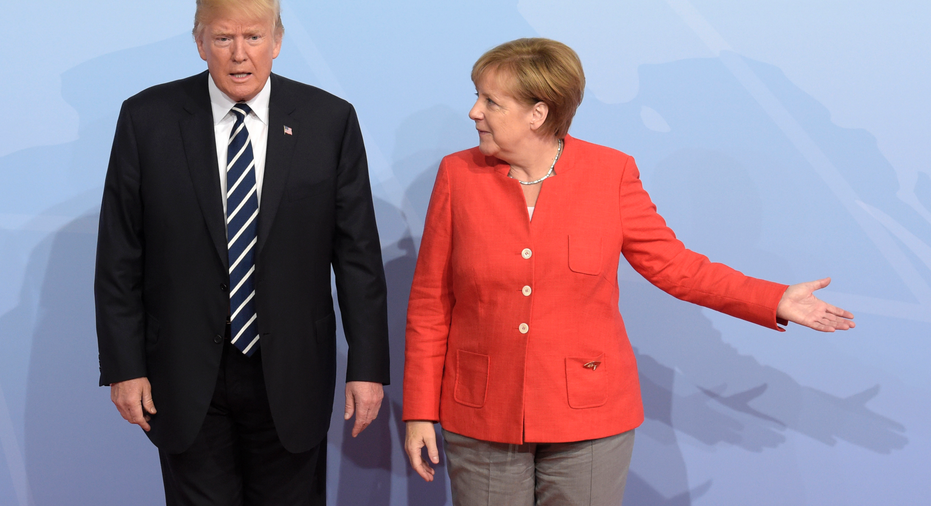A guide to what's up at the Group of 20 summit

HAMBURG, Germany – An assertive U.S. president willing to tear up existing deals. Clashing positions over trade and climate change. North Korea launching a long-range missile. A global economy that's growing but leaves many people out.
A lot is on the table at this year's summit of world leaders from the Group of 20, a group of countries that make up over 80 percent of the global economy.
Here is a fast rundown.
___
TRUMP AND PUTIN
U.S. President Donald Trump will have a keenly watched one-on-one meeting with Russian President Vladimir Putin, which comes amid congressional and FBI investigations into links between Trump's campaign aides and Russia. Moscow and Washington have sharply divergent views on the Syrian war, the Ukrainian crisis and other issues on the agenda, making any quick deals unlikely.
In a speech in Warsaw ahead of the summit, Trump sought to demonstrate that he wasn't overlooking Russian behavior. "We urge Russia to cease its destabilizing activities in Ukraine and elsewhere, and its support for hostile regimes, including Syria and Iran, and to join the community of responsible nations in our fight against common enemies and in defense of civilization itself," he said.
___
TRADE
The Group of 20 typically includes a vow to support free trade and a ban on "all forms" of protectionism. But that was before Trump joined the group.
Trump says trade has to be fair to American companies and workers, not just free and open. The European Union, a G-20 member, is countering by announcing a free-trade deal with Japan and insisting that the protectionism ban needs to stay. The protectionism reference was dropped by the smaller Group of 7 summit in May after a tussle with the Trump administration and the new wording emphasizes "free and fair."
___
CLIMATE
Trump's announcement that the U.S. would withdraw from the Paris climate treaty has put him sharply at odds with many other leaders, not least the summit host, German Chancellor Angela Merkel. Yet she's eager to come up with a collective statement on the issue. That could include other countries expressing their commitment to exceed their treaty commitments to limit greenhouse gases as a response to Trump. The U.S. could also at least commit to "a global approach" to fight global warming.
That possibility dismayed the environmental group Greenpeace. Spokesman Tobias Muenchmeyer said that since emissions reductions would be implemented at the national level, a vague global pledge "is a license to do nothing."
___
GROWTH IS NOT ENOUGH
This year, the global economy is doing fairly well, and financial markets have been buoyant. But that hasn't reassured people across the developed world, where wages are stagnant and technological change and foreign competition are threatening jobs. The G-20 could agree on using the tools that governments have — budget and tax policy on top of central bank stimulus — to push the economy forward. Ways to soften the impact of trade and globalization could include more education and programs to help people who lose their jobs. The implementation, however, is left up to national governments.
"Let's see what we can accomplish together," said Merkel as the summit began. "I think that globalization can be managed so that it is a win-win situation, where there are winners there don't always have to be losers."
___
NORTH KOREA
North Korea isn't on the official agenda and probably won't be discussed in the final summit statement. But that doesn't mean it won't be discussed on the sidelines, with key players the U.S., China, and South Korea all in attendance.
Trump warned North Korea that he's considering "some pretty severe things" in response to the isolated nation's unprecedented launch this week of a missile capable of reaching the U.S. He offered no details, but called on all nations to confront North Korea's "very, very bad behavior."
___
Geir Moulson and Vladimir Isachenkov contributed to this report.



















